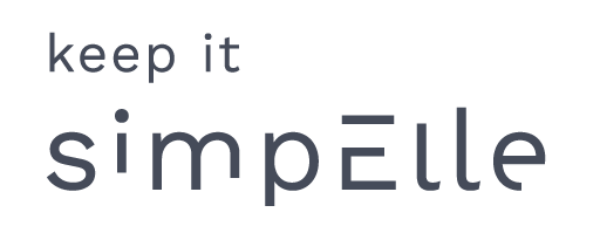
Even if you have a career that keeps you busy and on the move, you can still stay healthy and energised. This article outlines how you can incorporate physical activity into a busy schedule, provides practical healthcare advice, and gives tips on nutrition, rest, and recovery. This approach keeps you healthy and focused while on the job. This is especially useful if you are a nurse or work in jobs that demand extended hours. This way, you will understand what is needed, why it is needed, and how to easily incorporate it into your lifestyle.
Feeling overworked and exhausted in your career is all too common, and most professionals go unacknowledged in this regard. A lack of physical activity, healthy food, sleeping patterns, and proper rest often leads to a lack of productivity, fatigue, and weakened body defences. Additionally, lack of proper rest, combined with unexpected long hours, is a common sight for professionals in the healthcare and medical industry.
Studies by PMC show that adults working over 50 hours a week are more prone to burnout and physical health issues. Moreover, in this era of minimal rest and recovery, distractions are abundant, making time for your health more of a challenge than a choice.
Understanding the Challenges of a Busy Career
The impact of a busy career can take a serious toll on a person’s physical and mental. Standing for long hours and performing countless activities can lead to bodily fatigue and even mental breakdowns. The impact of constant standing and lifting can lead to issues such as back or joint pain. Disorders caused by mental fatigue, lack of focus, and decision fatigue can lead to very poor outcomes in the workplace.
Even members of the world of work can enrol in appropriate programs that help grow their careers. The online second degree accelerated BSN programs provide an opportunity to learn while working. In 14 months, one can easily complete the required online slots for the in-class sessions. Even after stepping onto the career ladder, one can easily manage to balance work and learning. This proves that with the help of proper programs, one can easily grow in a busy career.
Working long hours often disrupts natural routines. Employees tend to skip meals, eat on the move, and cut down on any forms of exercise, all of which are extremely detrimental to one’s health! Fatigue has been known to lower one’s motivation to exercise, and as a result, prepared meals are often replaced with easily accessible foods. Adapting to such a lifestyle poses a challenge, and as a result, realistic wellness strategies which help to maintain one’s lifestyle are essential.
Quick Workouts You Can Do Anywhere
One does not need to purchase a subscription to a gym or allocate an entire hour to a single session of fitness. Short and intense workouts can easily be integrated and interspersed with breaks, around shifts, or even after hopping on the bus at the end of the workday. HIIT sessions, body’s own weight sets, and even simple mobility exercises ensure one improves their strength, flexibility and cardiovascular health.
Start with simple movements such as squats, lunges, push-ups, planks, and a few targeted muscle stretches. A 10-minute workout done consistently at least three times a day has proven to maintain muscle tone, boost posture, and diminish stiffness due to long static positions. Even the smallest movements, such as standing and seated twists during downtimes, can improve blood circulation and combat fatigue.
Short workouts can be more productive if you have light weights, dumbbells, or resistance bands. For mental health benefits, you can incorporate physical activity with breath meditation or short mindful moments. Remember, each activity need not be very intense; rather, consistency is what is important. Pacing small time windows each day helps to maintain energy without fatigue or over-scheduling.
Nutrition Strategies for On-the-Go Professionals
Fueling the body during extended, unpredictable shifts might also seem daunting, but energy-sapping and body fueling is possible with simple tactics. Avoiding vending and fast food is possible with careful planning of meals and snacks. Instead, nutritious foods like vegetables and fruits, lean protein, whole grains, and healthy fats have to be prioritised.
Easy to carry snacks like pre-cut vegetables, boiled eggs, fruits, yoghurt, and nuts are smart options for short work periods. These snacks are also beneficial during times of fatigue and waning attention. Also, remember to drink enough water. You can set goals to maintain enough water intake over the day with a personal water bottle. Healthy meals are easy to come by, even for busy days, if batch meals are prepared during the day off and stored in the fridge.
Be mindful of serving sizes and timing. Balanced and timed snacks can help you avoid blood sugar spikes and crashes. Focus on balanced serving of protein, complex carbohydrates, and healthy fats. A balanced lunch of quinoa with roasted vegetables and grilled chicken sustains your energy. A simple snack of a banana and almonds helps you stay mentally focused during a long afternoon shift.
Prioritising Rest and Recovery
Rest and recovery need to be prioritised and are just as important as exercise and nutrition. During sleep, your body helps in self-repair, restores energy, and enhances mental focus to a certain level. Physically demanding adult workers should aim for seven to nine hours of sleep of decent quality. Short naps of 15-20 minutes are also beneficial as they increase energy and mood.
Gentle recovery and stretching, yoga, or slow walks help with the tension and relaxation needed. Foam rolling or focused mobility exercises relieve soreness and improve range of motion. Incorporating mental relaxation exercises helps improve sleep and reduce mental fatigue. Other factors include sleeping in a dark, quiet, and cool room to rest deeply.
In the long run, with the integration of the shift recovery into the routine, the energy expended daily will not be in vain, as the level of physical activity will be substantially more useful.
Self-listening is the art of paying attention to one’s feelings to see if one is tired or sore. Use soreness or tiredness less as a reason to stop and rest and more as a reason to engage in lighter activity. Recovery is a very important aspect of one’s wellness routine. Recovery is not a period to take a breather. Recovery is essential. This ensures that one has endurance in the long run and limits their chances of injuries or burnout.





